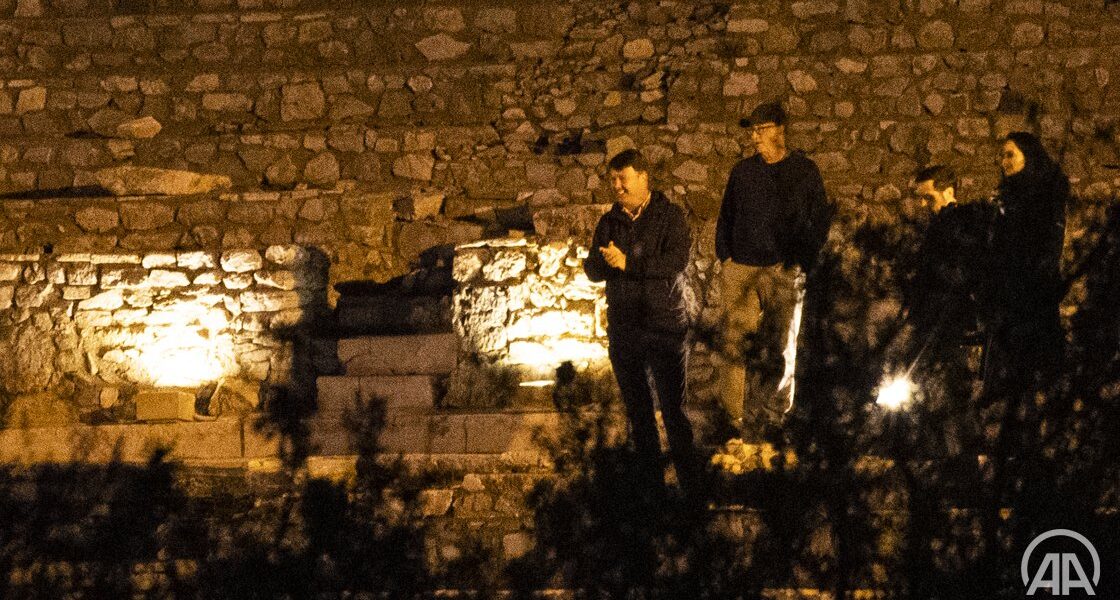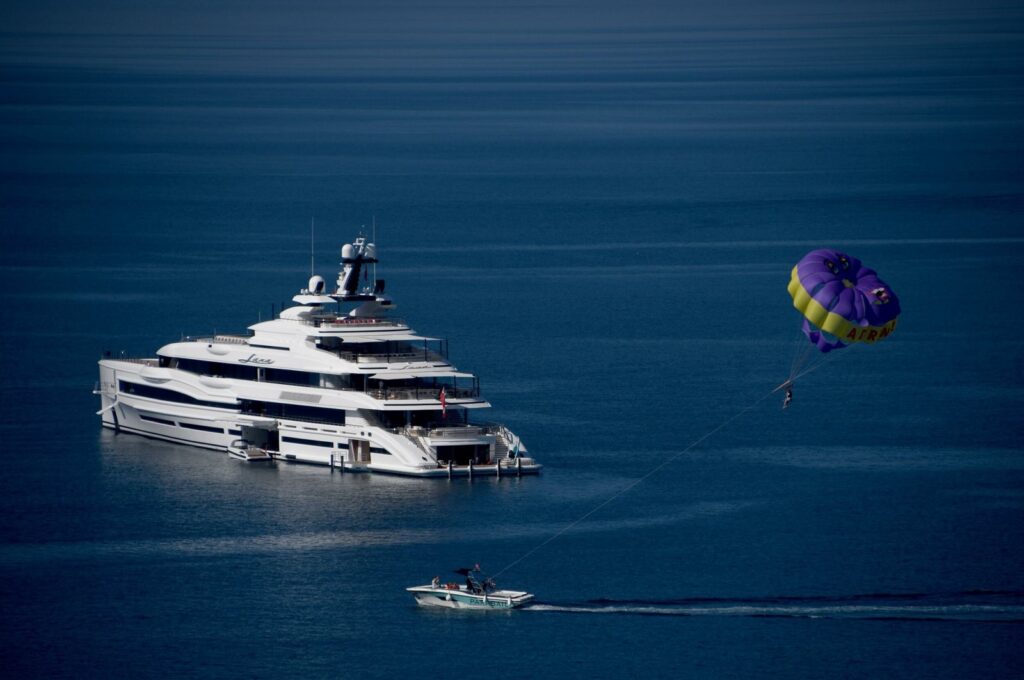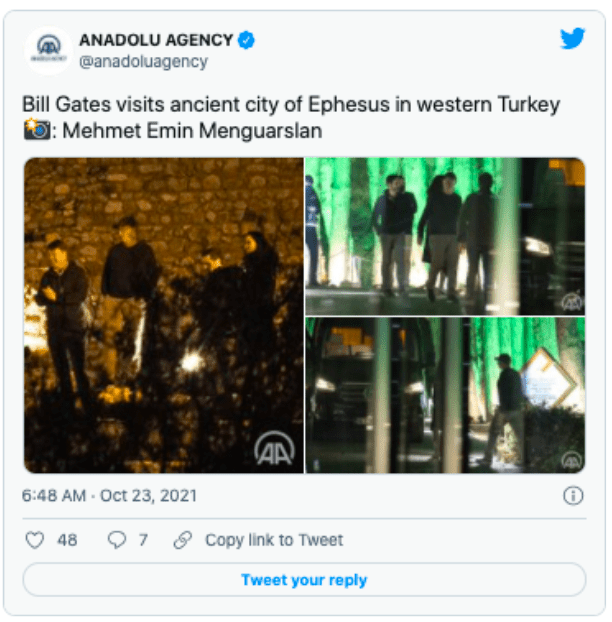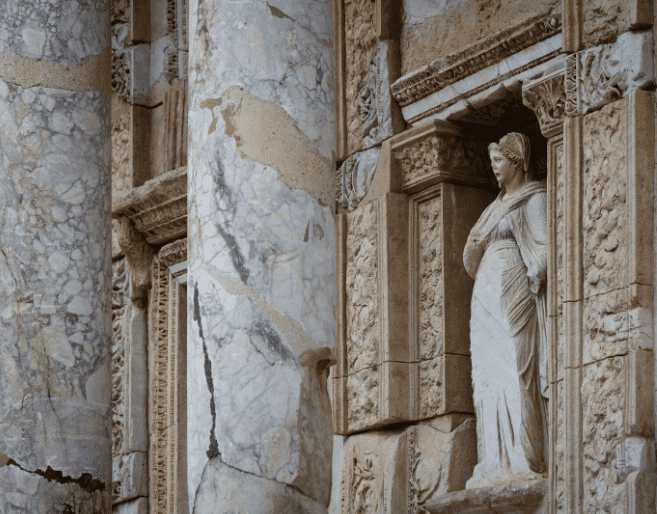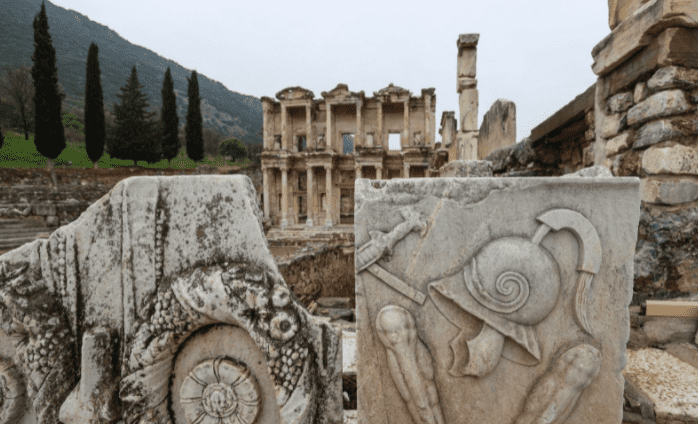Microsoft founder and the world’s fourth-richest person, Bill Gates, visited the ancient Greek city of Ephesus and Christian pilgrimage sites on the southwestern shores of Turkey with his super-luxury yacht on Friday.
Gates disembarked from aboard his 107-meter-long and 16-meter-wide yacht luxury yacht “Lana,” which was launched to sea last year with a weekly rent of 1.8 million euros ($2.09 million).
Lana was anchored early in the morning off the Kuşadası coast of western Aydın province early in the morning and accompanied by a 68.2 meter long catamaran support vessel, “Wayfinder,” with an estimated weekly rent of EUR 1 million.
After resting in the yacht for a while, Gates boarded a private helicopter for Meryemana House (House of Virgin Mary) in the Selçuk district of Izmir, a western Turkish city where the Assumption, or bodily ascent, of Virgin Mary to heaven, is believed to have taken place.
This was the second time Gates has visited Meryemana House, having visited for the first time in 2005 when he was vacationing in Marmaris with his then wife Melinda, who he divorced in May this year after a 27 year marriage.
The House of Virgin Mary, a stone structure on the outskirts of Bülbül Mountain, has been a popular spot for Christian pilgrims since its discovery in the 19th century. It was discovered after a series of visions by 19th-century nun Anne Catherine Emmerich led priests to Ephesus. The house was built by the Apostle John for Mary, according to Emmerich, who was later beatified by the Vatican.
The Catholic faithful believe the Virgin Mary underwent her Assumption – her death – in the house, which dates back to the Apostolic Age. Though the Vatican never openly acknowledged the place as the dwelling of the Virgin Mary, it was visited by three pontiffs in the 20th century and recently by former Pope Benedict XVI in 2006.
From Meryemana House, Gates then visited Ephesus, an ancient Greek settlement in Selçuk and an important Christian pilgrimage destination today, accompanied by his private bodyguards.
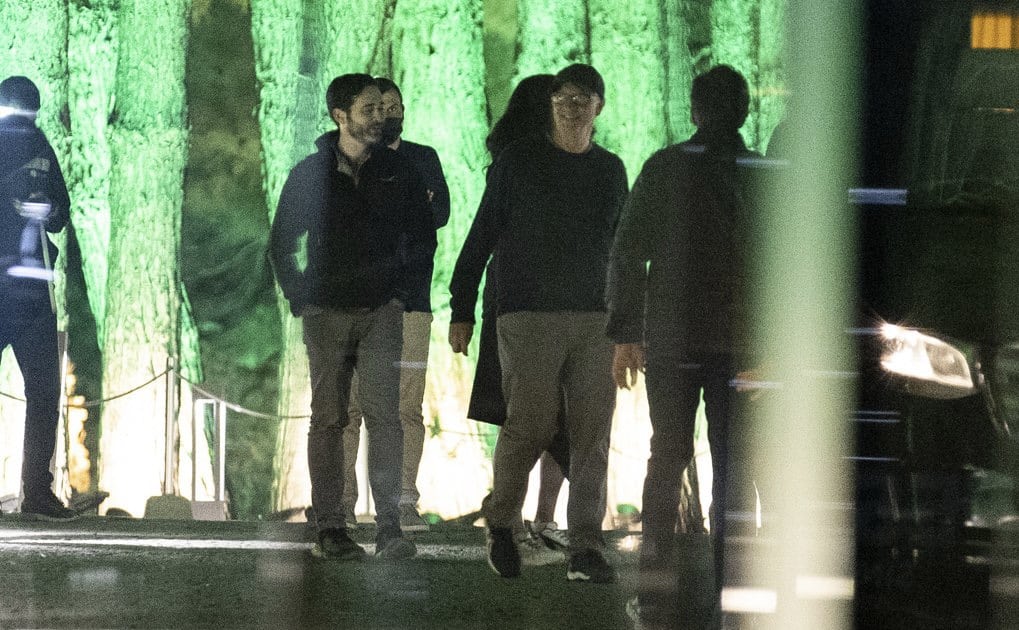

Ephesus was an ancient port city whose well-preserved ruins are in modern-day Turkey. The city was once considered the most important Greek city and the most important trading centre in the Mediterranean region.
Throughout history, Ephesus survived multiple attacks and changed hands many times between conquerors. It was also a hotbed of early Christian evangelism and remains an important archaeological site and Christian pilgrimage destination.
Ephesus is located near the western shores of modern-day Turkey, where the Aegean Sea meets the former estuary of the River Kaystros, about 80 kilometres south of Izmir, Turkey.
According to legend, the Ionian prince Androclos founded Ephesus in the eleventh century B.C. The legend says that as Androclos searched for a new Greek settlement, he turned to the Delphi oracles for guidance. The oracles told him a boar and a fish would show him the new location.
One day, as Androclos was frying fish over an open fire, a fish flopped out of the frying pan and landed in the nearby bushes. A spark ignited the bushes and a wild boar ran out. Recalling the oracles’ wisdom, Androclos built his new settlement where the bushes stood and called it Ephesus.
Another legend says Ephesus was founded by the Amazons, a tribe of female warriors, and that the city was named after their queen, Ephesia.

